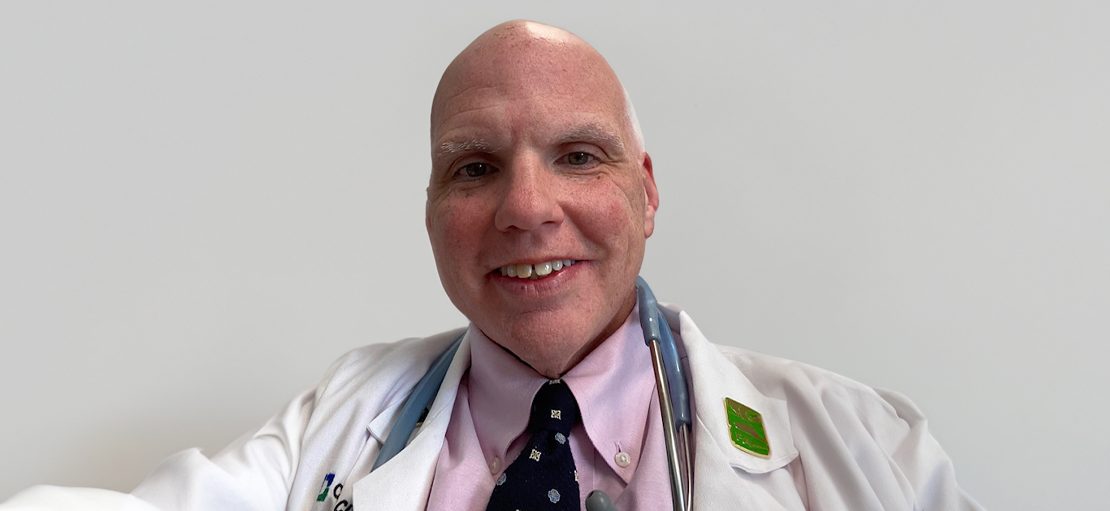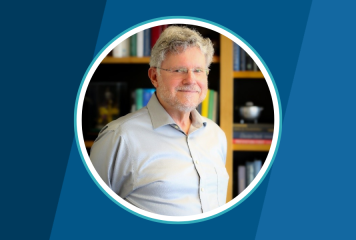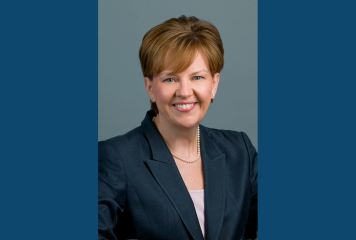Russell Lee Bedsole, MD, FACP, is an internal medicine specialist in Cleveland, Ohio. His clinical interests include treatment and prevention of deep vein thrombosis, bone health and early detection of cancer. His academic interests include bioethics and health care education. During the COVID-19 pandemic, he spent a lot of time working to reverse misinformation that his friends, family and patients were seeing on social media. He is a member of the ABIM Blueprint Review Physician Advisory Panel.
During COVID, you did a lot of media interviews and created a video blog. What led you to do this and what were your goals?
Initially, when COVID first hit and I began to realize the gravity of the situation, I started sharing information on Facebook with some friends and family. We had not seen a pandemic like this in 100 years and the posts started as a “this is what I know” kind of thing where I was just trying to impart some knowledge about what we knew at the time. We had a lot of views every week, especially in the first year where we really didn’t know a whole lot and people were deathly afraid of the infection. I started getting feedback that people wanted me to keep going and were searching for this kind of information and it evolved in that fashion, through word of mouth.
My main goal at that point was education—what we knew and what advice the CDC was giving—which was obviously changing. And also, to provide some reassurance and guidance. Obviously, I had a patient population who listened and then it evolved into the community itself, which launched into the vlog and some media interviews, including a front-page article in the local newspaper and some radio interviews.
You recently completed some research around medical misinformation; tell us about that work.
I just finished being part of a nine-month interdisciplinary project with a collaborative group made up mainly of medical students, dental students, social workers and nurses. We looked at social media disinformation and misinformation, and came up with a curriculum that hopefully will be marched out to health professionals at Case Western here in Cleveland and in other places eventually. It would be part of a one-hour elective that health professionals could choose to take and a two- to four-week course for medical students where you go through some of the principles of communicating on social media and it would involve a psychologist, somebody from the English department, and people from sociology and other specialties.
The program focuses on how to use social media in a way that provides accurate information, especially in an age where there’s so much disinformation. It looks at how we can collaboratively approach a social media presence and focuses on things like: how do you get your message across in a truthful fashion without being aggressive? How do you communicate negative messaging without emphasizing the negative? What language is most effective? How do you write a post, what should you include? How to show that you’re a reliable, accredited source?
Unfortunately, what we see is that a lot of patients see something online that says, “Dr. Jones recommends this,” and then automatically say, well, this is a doctor, they must be must be knowledgeable. We know most people are trying to do the right thing but there are some bad actors out there who have “credentials” but give bad information. That is causing a lot of confusion and unhealthy behavior.
Why do you think it’s important for medical students to learn how to communicate this way?
It just became apparent to me how much our patients use social media, how much the younger generation uses social media. The World Health Organization said during the pandemic that the pandemic was as much of an infodemic as it was anything else—the misinformation was just running wild. I became convinced and I’m still convinced that if we as health professionals cede the field, or withdraw from social media, we’re going to leave misinformation, disinformation and bad information just out there ubiquitously persisting. And I think we have to meet the patients where they are, especially the younger generation—and they’re on social media.
I think all of us would agree that none of us are perfect as far as communication or communication strategies go. But one thing we can say is that there were communication problems throughout the pandemic. And part of obtaining and keeping the public trust is working on communicating with patients in a way that is respectful but effective. So, I don’t think we can withdraw and say we just don’t deal with social media. We’re going to have to embrace it because that’s where so much information is coming from at this point.
Did you encounter a lot of misinformation and disinformation in your practice during COVID? And has this continued?
Yeah, there was a lot of disinformation where people were convinced to do something that was wrong. I have seen patients literally die from disinformation. In my former practice there were people who thought the virus was not real, that it was a hoax. I had people come into the hospital for severe COVID and literally leave while being treated because they thought it was all a hoax. I do think a lot about the patients who had bad outcomes, especially because of disinformation.
Right now, what we deal with a lot is skepticism regarding the vaccines and vaccine disinformation that has spilled over into measles, mumps, rubella and all this stuff where the standard vaccination platform that we’ve had for 50 or more years now is coming into question. It’s mind blowing to those of us who’ve seen children with measles, mumps—you don’t ever forget it. And to say that we’re going to back off childhood immunization requirements is absurd.
In some ways, I think there has been an erosion of trust in medicine. We need to rebuild the trust people had in their doctors and the health care profession as a whole. I think that’s kind of the magic: if it works well and if it’s done correctly, even the most ardent skeptic accepts the advice of a trusted physician. It all comes down to the relationship with the patient.



